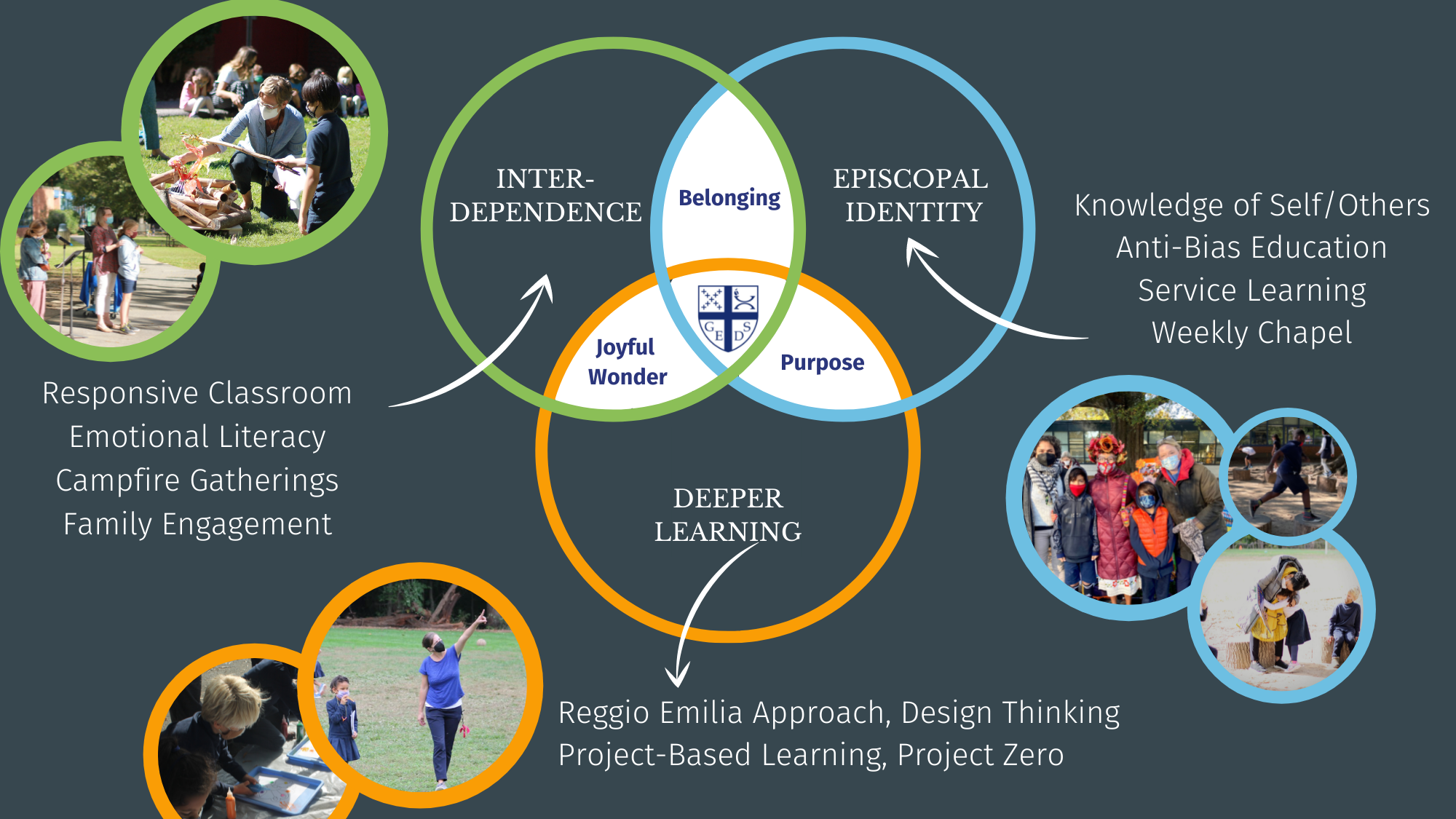Learning at Grace Episcopal Day
As experts in the wonder years of childhood, we make learning joyful and engaging from age 2 through Grade 5. The result is confident, purposeful learners who are ready for middle school and beyond.
Throughlines:
- Respect for the child. We believe every child who walks through our doors is capable of guiding their own learning. This student-centered view is at the heart of Reggio-inspired early childhood education at Grace, and it informs how we teach elementary school, too. The adults at Grace listen, observe, reflect, document, and guide, walking alongside students as they take charge of figuring out how the world works.
- Small class sizes. Grace has just over 100 students, 25 teachers and staff, and a maximum class size of 16 students. In small classes, teachers can meet children where they are and use what they know both to individualize instruction and to group students together to encourage deep, authentic learning.
- Proven pedagogy. Focused on teaching young learners, our faculty weave three proven approaches into their teaching and ongoing professional development: Reggio Emilia-inspired education, Project Based Learning, and Harvard’s Project Zero research and initiatives. These proven approaches are supported by an Orton-Gillingham approach to reading instruction and the Math in Focus curriculum both of which begin in Kindergarten. The result is a vibrant learning culture that is palpable in every classroom.
- Diversity as an academic virtue. Moved to start Grace by the Episcopalian idea that different viewpoints are a source of wisdom, our founders intuited what recent studies show: Diversity makes us smarter! By learning to learn together, our students develop the empathy and respect for others’ perspectives that the world needs.
- Space to play and grow. Grace is perfectly set up to be an age 2-Grade 5 school. Inside, every classroom shares the same long hallway, like leaves emerging from a stem. The flow of the space is a visual representation of the progression from preschool through the elementary grades. Outdoors, our 11-acre campus cultivates children’s sense of wonder in nature and their physical development from the playground to the athletic field.
Outcomes:
Grace graduates transition to their “best fit” schools after Grade 5 with everything they need to grow into adolescence, both as students and as people.
